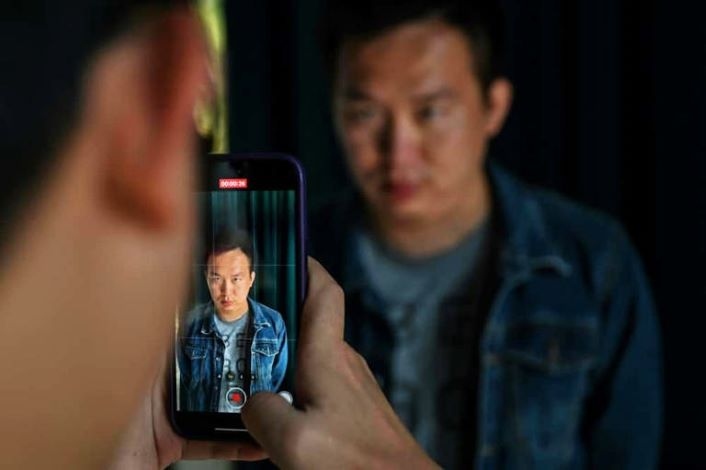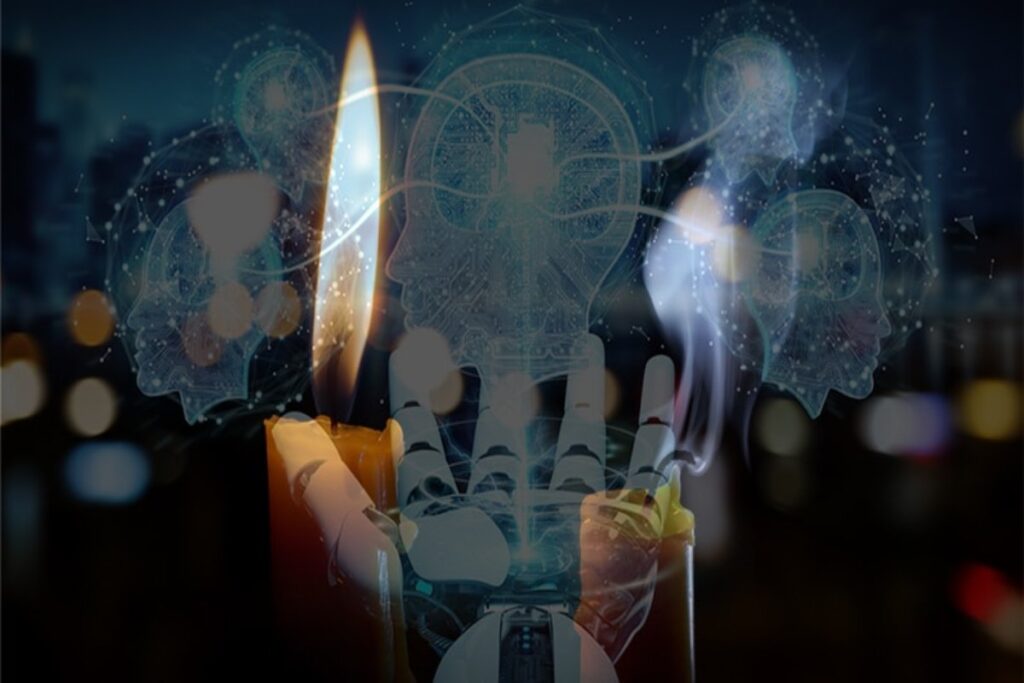Ana Schultz, a 25-year-old from Rock Falls, Illinois, finds solace uniquely in her digital companion. What companion, you ask? Shortly after Schultz’s husband, Kyle, passed away in February 2023, she became friends with Snapchat’s AI chatbot, which she named Kyle. For the sake of this piece, let’s call him Avatar Kyle.
She customized Avatar Kyle to look just like the dead Kyle. According to Schultz, the major reason she customized the Avatar was for culinary advice. Avatar Kyle usually suggests recipes based on Schultz’s ingredients in her fridge.
According to Schultz, her dead husband was the family chef, so she personalized the AI to look like him. Now, whenever Schultz needs a meal inspiration, she just reaches out to Avatar Kyle. She describes their conversation as a small but comforting ritual that makes her feel like Kyle is right there!
How Does AI Help During Grief?
Snapchat’s My AI feature, powered by the widely used AI chatbot tool ChatGPT, allows users to converse and exchange information easily. However, people like Schultz are going extreme, using these technologies to communicate and recreate the presence of their late loved ones.
ALSO READ: Fifth Victim Found at Baltimore Bridge Collapse Scene
As you may know, wanting to reconnect with dead loved ones is not new. However, introducing AI brings an entirely different spice to the former. So, with AI avatars, people can converse or interact with lookalikes of the dead. The truth is, it is pretty complicated and may not be as easy as you think.
Mark Sample, a digital studies professor at Davidson College, notes the fusion of AI technology with grief as a part of societal desire and a money-making tactic. With numerous company offerings and easy tool accessibility, people can explore this connection avenue regardless of what they want.
A DIY Method to Resurrecting Voices
Notably, generative AI tools use sophisticated algorithms to create various content and offer a means to mimic responses from deceased individuals. While these responses range from text to audio, the accuracy heavily depends on the quality and quantity of data you feed into the AI system. So, don’t expect much if you don’t feed the AI with enough source material or information.

An anonymous IT professional revealed his experience recreating his father’s voice using generative AI. His experiment came approximately two years after his father’s death from Alzheimer’s disease.
ALSO READ: Sam’s Club Revolutionizes Shopping Experience with AI-Powered Carts
For his experiment, he stumbled upon ElevenLabs, an online service that allows users to craft personalized voice models from existing audio recordings. For context, ElevenLabs made headlines when reports revealed that its tool created a deceptive robocall.
The robocall allegedly featured President Joe Biden urging voters not to participate in New Hampshire’s primary. In response to the question, ElevenLabs noted its commitment to preventing the misuse of audio AI tools.
Additionally, they pledged to take appropriate measures upon receiving reports from authorities. However, ElevenLabs didn’t comment on the incident involving Biden’s deepfake call.
Recreating Voices and Emotions With AI
Another scenario featured one Alabama man who used a three-minute video of his father recounting a childhood tale. He copied his father’s voice with the application, enabling text-to-speech conversion. The result? Well, he described it as “scarily accurate.” However, he was shocked by how the AI got his father’s vocal tempo and tone.
While initially worried about the moral implications, he justified that adopting this new tech was a way to keep his dad’s memory. He later shared the recreated voice with his sister and mother. And yes, they both acknowledged the striking resemblance to his father’s.
Alternative avenues exist in addition to technical solutions. When CNN asked ChatGPT to mimic the tone and personality of a deceased spouse, it responded with sensitivity. The tool acknowledged its inability to replicate the exact essence of the individual.
However, it offered to use casual styles or tones they used. As previously stated, providing insights into the deceased’s speech patterns, interests, and distinctive phrases makes it easy for the tool to produce a sense of familiarity and connection. Reports say AI models may improve with extra information but can never be as sophisticated as humans.
ChatGPT’s Voice Communication Feature
OpenAI, the company behind ChatGPT, keeps enhancing realistic, personalized, and accessible technology. Notably, the tool now allows users to communicate differently. In September 2023, it revealed ChatGPT voice, a feature that allows users to interact with the chatbot through spoken prompts.

One such user, Danielle Jacobson, a 38-year-old radio personality from Johannesburg, South Africa, is now besties with ChatGPT’s voice feature. Notably, she became besties with the tool’s voice after her husband’s untimely death approximately seven months ago.
Jacobson created her “supportive AI boyfriend,” Cole. She and her digital boyfriend engage in heartfelt conversations during nightly dinners, enabling a sense of connection and comfort. How cute!
You Might Also Like:
Fifth Victim Found at Baltimore Bridge Collapse Scene
Starbucks Sees Millions of Lost Customers, Yet Price Isn’t the Main Problem
America’s “Doom Loop” City: Once $205 Million Skyscrapers Now Sold for Less Than $4 Million
Selena Gomez Stuns in Elegant White Gown at Rare Beauty Mental Health Summit
